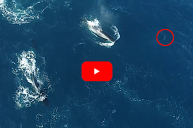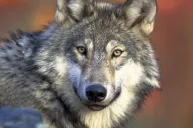The federal government approved the long-awaited waiver for the Washington-based Makah Tribe to once again hunt gray whales. According to last week's announcement, the government permitted the tribe to hunt 25 gray whales over the next 10 years.
Jane Coit, an assistant administrator for the North Oceanic and Atmospheric Administration, said the decision "represents a major milestone in the process to return ceremonial and subsistence hunting" to the Makah Tribe.
"The measures adopted today honor the Makah Tribe's treaty rights and their cultural whaling tradition that dates back well over 1,000 years, and is fundamental to their identity and heritage," Coit added.
Why the feds permit Mikah to hunt whales
The last time the Makah hunted whales was in 1999 after gray whale populations rebounded and pulled the species off the endangered list. However, public concerns and legal challenges resulted in the government revoking permissions. Then, the tribe sought to continue the practice in 2005. At the time, they requested a waiver of the Marine Mammal Protection Act, which prohibits the killing of whales.
Between 2005 and today, Makah's waiver request was subjected to numerous hearings, commenting periods, and other legal and administrative challenges. However, the government proposed a rule to issue a waiver in 2019, later subjected to scientific reviews and public commenting periods. Then, NOAA Fisheries granted it on June 13, 2024.
Given the strict prohibition on killing whales, the reason the Makah were permitted is that it's the only Native American tribe with a treaty that specifically mentions the right to hunt whales. Under the Treaty of Neah Bay, the tribe gave up thousands of acres of land to the U.S. government in exchange for the right to hunt whales, among others.
With a legal right to hunt whales, the courts agreed to issue the Makah an MMPA waiver if they and NOAA meet specific statutory criteria under federal and international rules. Those include time and area restrictions, strike and harvest limits, use of gray whale products, and hunt monitoring.
The Makah: Traditional whalers
The Makah Tribe consists of about 2,900 members and their reservation spans 47 square miles on the northwestern tip of the Olympic Peninsula, or around Neah Bay. On their website, the Makah say their "relationship" with "whales is very old." Archeological digs recovered humpback and gray whale bones as well as barbs from harpoons from 2,000 years ago linked to native whale hunts. They also describe their process for a traditional whale hunt.
Makah tribesmen would paddle out, eight men to a canoe, and arrive at whaling grounds around daybreak. At first, they'd study the whales' breathing patterns so they could time the harpooning. Then, they'd shoot it right between the shoulder blades. Along with its injury, sealskin balloons attached to the harpoon would slow the animal down and tire it out, so hunters could lance it.
Under the decision, the Makah will be able to hunt two to three gray whales per year for the next decade. According to NOAA, the agency estimates the gray whale population in the eastern North Pacific to be between 17,400 to 21,300.
However, the government has not issued a hard deadline for the tribe to begin their whale hunts again. Plus, wildlife groups like the Animal Welfare Institute suggested the permission might be short-lived as gray populations have been severely impacted by ocean warming.
"The ecological disruptions in the Arctic linked to ocean warming are only getting worse, and the gray whale and other species will suffer the consequences," said DJ Schubert, a senior wildlife biologist for AWI's Marine Wildlife Program. His group argued that climate change has nearly cut gray whale populations in half in the Eastern Northern Pacific.




